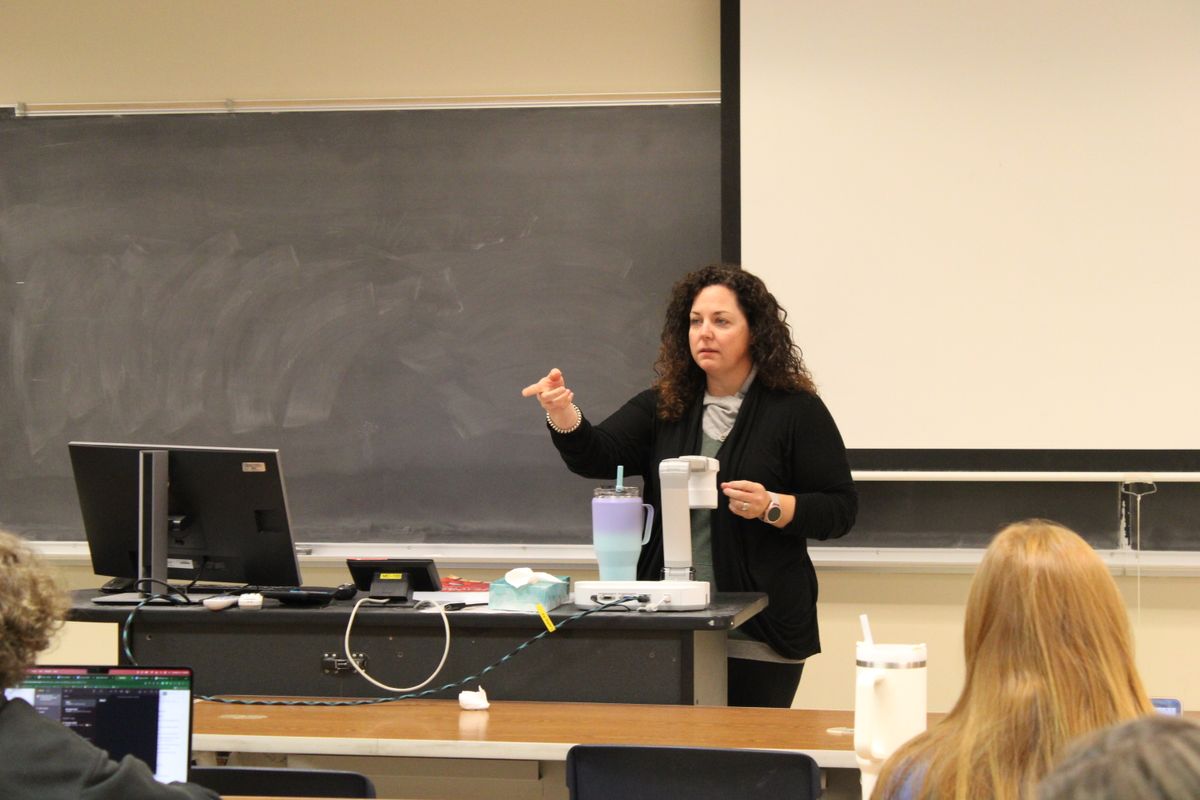Criminal justice joins list of majors

As part of the Viking Bold plan, Augustana added a criminal justice major to the academic catalog for the 2023-2024 year. Approved in mid-October by the Higher Learning Commission, students can now add the major for 35 credit hours.
“We’ve had this interest for some time now,” sociology professor William Swart said. “As a department structure, criminal justice will be operating under sociology. There won’t be a whole new department. For courses, there is a collection of specific criminal justice courses and electives.”
Before the addition of the major, students could major in sociology, psychology or government and include an emphasis in the criminal justice area. With this option still available for students, the criminal justice major will provide a larger background to the field of study, bringing in courses from various departments.
Government professor David Golemboski will be teaching the required “Criminal Law” course and an elective course, titled “Constitutional Law: Civil Liberties.”
“This elective deals with issues of criminal procedures of the rights of the accused,” Golemboski said. “When can your house be searched? What rights do you have when you’re arrested? What rights do you have in the criminal process in terms of a right to a trial by jury? And things like that. Those are things that will be a part of the major.”
Other courses for the major will be housed in departments such as anthropology, psychology, economics and government.
“You will not need to major in sociology as well,” Golemboski said. “There will be substantial overlap so students may find it useful to major in both. I can also imagine that if students want to double major in criminal justice and government or psychology or even considerably neuroscience if they have that type of inclination.”
So far, Augustana has hired assistant professor Stacy Sanders, who is teaching four academic courses this semester, one of which is “Policing and Society.”
“We had a candidate interview [on Nov. 3], so the hire of this person is underway,” Swart said. “The position has been approved, and we are full steam ahead in the thick of it now. If things go the way we hope, we will have the candidate signed and ready to go by the end of the semester, but they won’t start until next fall.”
Golemboski said finding a professor with a critical perspective on criminology and the justice system will be integral to the major.
“That’s a major part of how the major was designed, and there have been many candidates who have a practice experience or academic perspective on the criminal justice system but don’t share that critical lens,” Golemboski said. “We’re holding out for the right candidate rather than settling for someone who isn’t exactly the right fit.”
Switching from sociology to a double major in criminal justice and psychology, junior Emma Johnson is pursuing a career path in federal law enforcement. She completed a summer internship this year at the Division of Criminal Investigation in South Dakota.
Johnson said she is looking forward to expanding her education with the new major.
“There’s a criminal justice procedures and systems being taught next semester, and I think that’s really important to learn all the branches of law enforcement and what that looks like,” Johnson said. “We have a lot of guest speakers in [Policing and Society], so it’s nice to get that first hand experience of what these jobs look like.”
Johnson is also taking “Deviance and Social Control,” a sociology course with Swart, who has completed graduate work in criminal justice and deviance and social control.
“What excites me for the new major is that we really want students to come away from this major having thought deeply of criminal justice, about the practice of policing, how the system is structured, about the role of connections and those kinds of things,” Swart said. “What we’re hoping students get is the background that a student could get anywhere, but then sort of an additional deeper content is what we’re shooting for.”
Freshman Nolan Ferri is a criminal justice major with a minor in anthropology, emphasizing in forensics. He is also taking Sanders’ “Policing and Society” course.
“I always want to do the right thing, and I took a few classes in high school considering governmental law and forensics,” Ferri said. “I thought they were really cool, and I’ve always wanted to do something in my life that helps people. Law enforcement and law is one way that I can do that.”



